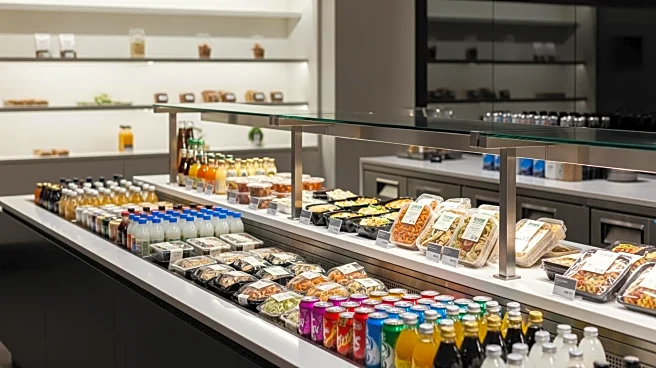What's Happening?
Max Resource Corp. has announced a non-binding letter of intent with Bolt Metals Corp. for the potential acquisition of a 100% interest in the Florália Iron Ore Property in Brazil. Under the proposed terms, Bolt will pay USD $200,000 to Jaguar Mining
Inc. on behalf of Max Iron Brazil Ltd., maintain the property's status, and issue shares to Max Brazil and Max Resource Corp. over a 30-month period. This agreement follows a special meeting where shareholders overwhelmingly supported an initial public offering and reviewable deposition. The Florália Property, located in Minas Gerais, Brazil, has been expanded from an initial target of 8-12Mt at 58% Fe to 50-70Mt at 55-61% Fe. The transaction is subject to due diligence, definitive documentation, and regulatory approvals.
Why It's Important?
The agreement represents a significant step for Max Resource Corp. in expanding its mineral exploration and development activities. The Florália Iron Ore Property is strategically located in Brazil's largest iron ore and steel-producing state, offering established logistics and market access. This expansion aligns with global efforts to diversify mineral supply chains, potentially reducing reliance on dominant players like China. The deal could enhance Max Resource's portfolio, providing opportunities for growth in the iron ore sector, which is crucial for steel production and infrastructure development.
What's Next?
Completion of the transaction will depend on satisfactory due diligence and obtaining necessary regulatory approvals. If successful, Bolt Metals Corp. will proceed with the acquisition, potentially leading to further exploration and development of the Florália Property. Stakeholders, including investors and local communities, will be closely monitoring the progress, as it could impact regional economic activities and employment opportunities in the mining sector.
Beyond the Headlines
The expansion of the Florália Iron Ore Property highlights the growing importance of sustainable and responsible mining practices. As global demand for minerals increases, companies are under pressure to ensure environmental and social governance standards are met. This development could set a precedent for future mining projects in Brazil and beyond, emphasizing the need for transparency and community engagement.















